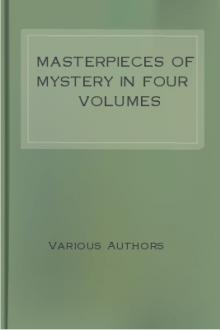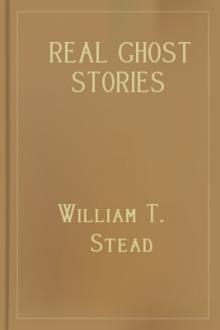Varney the Vampire; Or, the Feast of Blood by Prest and Rymer (ereader iphone .txt) 📗

- Author: Prest and Rymer
Book online «Varney the Vampire; Or, the Feast of Blood by Prest and Rymer (ereader iphone .txt) 📗». Author Prest and Rymer
"You look no older than you did when last we parted, and that was years ago."
"Why should I look older? You know as well as I that I need not. But, to be brief, I do not wish to interfere with any plans or projects you may have on hand. I do not wish to be a hindrance to you. Let me have five thousand pounds, and I am off at once and forever, I tell you."
"Five thousand! the man raves—five thousand pounds! Say one thousand, and it is yours."
"No; I have fixed my price; and if you do not consent, I now tell you that I will blazon forth, even in this house, who and what you are; and, let your schemes of ambition or of cupidity be what they may, you may be assured that I will blast them all."
"This is no place in which to argue such a point; come out into the open air; 'walls have ears;' but come out, and I will give you such special reasons why you should not now press your claim at all, that you shall feel much beholden to me for them, and not regret your visit."
"If that we come to terms, I no more desire than you can do that any one should overhear our conversation. I prefer the open air for any conference, be it whatever it may—much prefer it; and therefore most willingly embrace your proposition. Come out."
The baron put on his travelling cap, and the rich velvet cloak, edged with fur, that he possessed, and leaving his chamber a few paces in advance of his strange visitor, he descended the staircase, followed by him. In the hall of the hotel they found the landlord and almost the whole of the establishment assembled, in deep consultation as to whether or not any one was to go up stairs and ascertain if the stranger who had sought the baron's chamber was really a friend or an enemy.
But when they saw the two men coming down, at all events apparently amicably, it was a great relief, and the landlord rushed forward and opened the door, for which piece of service he got a very stately bow from the baron, and a slight inclination of the head from his visitor, and then they both passed out.
"I have ascertained," said the man who came on horseback, "that for the last week in London you have lived in a style of the most princely magnificence, and that you came down here, attended as if you were one of the first nobles of the land."
"These things amuse the vulgar," said the baron. "I do not mind admitting to you that I contemplate residing on this spot, and perhaps contracting a marriage."
"Another marriage?"
"And why not? If wives will die suddenly, and no one knows why, who is to help it. I do not pretend to control the fates."
"This, between us, is idle talk indeed—most idle; for we know there are certain circumstances which account for the strangest phenomena; but what roaring sound is that which comes so regularly and steadily upon the ear."
"It is the sea washing upon the coast. The tide is no doubt advancing, and, as the eddying surges roll in upon the pebbly shore, they make what, to my mind, is this pleasant music."
"I did not think we were so near the ocean. The moon is rising; let us walk upon the beach, and as that sound is such pleasant music, you shall hear it while I convince you what unpleasant consequences will arise from a refusal of the modest and moderate terms I offer you."
"We shall see, we shall see; but I must confess it does seem to me most extraordinary that you ask of me a positive fortune, for fear you should deprive me of a portion of one; but you cannot mean what you say."
While they were talking they reached a long strip of sand which was by the seashore, at the base of some cliffs, through which was excavated the passage from the coast into the grounds of Anderbury House, and which had been so expatiated upon by the landlord of the inn, in his description of the advantages attendant upon that property.
There were some rude steps, leading to a narrow arched door-way, which constituted an entrance to this subterraneous region; and as the moonlight streamed over the wide waste of waters, and fell upon this little door-way in the face of the cliff, he became convinced that it was the entrance to that excavation, and he eyed it curiously.
"What place is that?" said his companion.
"It is a private entrance to the grounds of a mansion in this neighbourhood."
"Private enough, I should presume; for if there be any other means of reaching the house, surely no one would go through such a dismal hole as that towards it; but come, make up your mind at once. There need be no quarrelling upon the subject of our conference, but let it be a plain matter of yes or no. Is it worth your while to be left alone in peace, or is it not?"
"It is worth my while, but not at such a price as that you mentioned; and I cannot help thinking that some cheaper mode of accomplishing the same object will surely present itself very shortly."
"I do not understand you; you talk ambiguously."
"But my acts," said the baron, "shall be clear and plain enough, as you shall see. Could you believe it possible that I was the sort of person to submit tamely to any amount of extortion you chose to practise upon me. There was a time when I thought you possessed great sense and judgment when I thought that you were a man who weighed well the chances of what you were about; but now I know to the contrary; and I think for less than a thousand pounds I may succeed in ridding myself of you."
"I do not understand you; you had better beware how you tamper with me, for I am not one who will be calmly disposed to put up with much. The sense, tact, and worldly knowledge which you say you have before, from time to time, given me credit for, belongs to me still, and I am not likely easily to commit myself."
"Indeed; do you think you bear such a charmed life that nothing can shake it?"
"I think nothing of the sort; but I know what I can do—I am armed."
"And I; and since it comes to this, take the reward of your villany; for it was you who made me what I am, and would now seek to destroy my every hope of satisfaction."
As the baron spoke he drew from his breast a small pistol, which, with the quickness of thought, he held full in the face of his companion, and pulled the trigger.
There can be no doubt on earth that his intention was to commit the murder, but the pistol missed fire, and he was defeated in his intention at that moment. Then the stranger laughed scornfully, and drawing a pistol from his pocket, he presented it at the baron's head, saying,—
"Do I not bear a charmed life? If I had not, should I have escaped death from you now? No, I could not; but you perceive that even a weapon that might not fail you upon another occasion is harmless against me; and can you expect that I will hesitate now to take full and ample revenge upon you for this dastardly attempt?"
These words were spoken with great volubility, so much so, indeed, that they only occupied a few very brief seconds in delivering; and then, perhaps, the baron's career might have ended, for it seemed to be fully the intention of the other to conclude what he said by firing the pistol in his face; but the wily aspect of the baron's countenance was, after all, but a fair index of the mind, and, just as the last words passed the lips of his irritated companion, he suddenly dropped in a crouching position to the ground, and, seizing his legs, threw him over his head in an instant.
The pistol was discharged, at the same moment, and then, with a shout of rage and satisfaction, the baron sprang upon his foe, and, kneeling upon his breast, he held aloft in his hand a glittering dagger, the highly-polished blade of which caught the moonbeams, and reflected them into the dazzled eyes of the conquered man, whose fate now appeared to be certain.
"Fool!" said the baron, "you must needs, then, try conclusions with me, and, not content with the safety of insignificance, you must be absurd enough to think it possible you could extort from me whatever sums your fancy dictated, or with any effect threaten me, if I complied not with your desires."
"Have mercy upon me. I meant not to take your life; and, therefore, why should you take mine?"
"You would have taken it, and,





Comments (0)